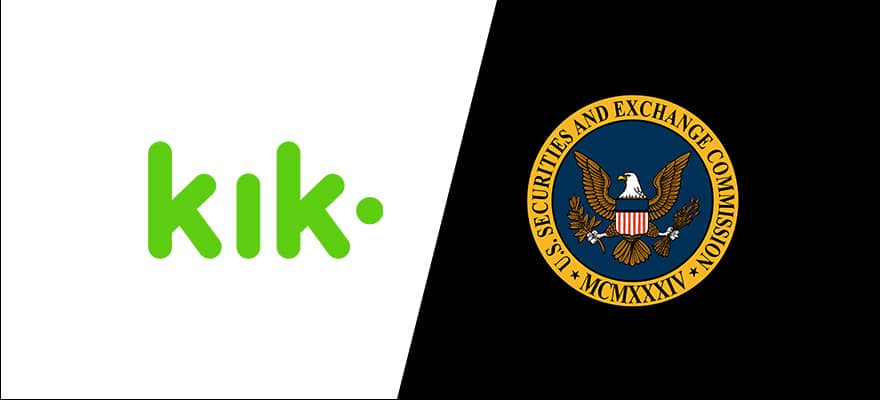Messaging platform Kik has received a massive blow on Wednesday as a US court ruled against it for violating the country’s securities law with its $100 million initial coin offering (ICO).
The ruling by Judge Alvin Hellerstein favored the US Securities and Exchange Commission (SEC) in motion of a summer judgment against the Canadian company. Both sides submitted their arguments in early July during a virtual court hearing.
The Judge pointed out that Kik’s token distribution event (TDE) satisfied the three prongs of the Howey Test, which determines if a particular financial instrument falls under the category of security or not. Notably, a large part of the crypto community has discredited the method.
“Kik concedes that its issuance of Kin through the Token Distribution Event (TDE) involved an investment of money by which participants purchased or acquired Ether and exchanged Ether for Kin,” the ruling stated. “Thus, the parties agree that the first element of the Howey test is satisfied. The parties dispute whether the second and third elements are satisfied.”
SEC Going after Big ICOs
Kik managed to raise close to $100 million, $55 million of which were from US citizens, in early 2017 from institutional as well as retail investors via an ICO. This alarmed the US regulator that filed the lawsuit against the company last year.
Interestingly, the messaging company put aside $5 million for court battles against the regulators.
Following the latest ruling, the two parties now have to 'jointly submit a proposed judgment for injunctive and monetary relief' by October 20, or else should note their differences.
Stating his disappointment, Kik’s CEO, Ted Livingston revealed that the company is “considering all of [...] options, including filing an appeal.”
“Kik has always supported the Commission's goal of protecting investors, and we take Compliance seriously. In preparing for the sale of Kin, Kik retained sophisticated counsel (both in the United States and internationally) to analyze the law as we understood it, and we continue to believe that the public sale of Kin was that of a functional currency and not a sale of securities,” Livingston added.


















